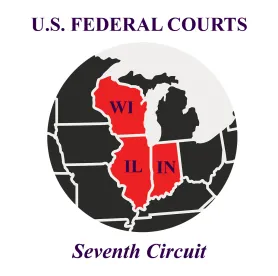In a striking reversal of approach beginning in the summer of 2022, the District Court for the Eastern District of Wisconsin went from denying, in whole or in part, virtually every motion to dismiss ERISA lawsuits targeting plan recordkeeping fees and investment fund selections to granting all of them. This nearly 180 degree pivot comes on the heels of the Seventh Circuit’s ruling in Albert v. Oshkosh Corp., 47 F.4th 570 (7th Cir. 2022), which affirmed dismissal of such claims.
The emergence of a district court in the Seventh Circuit as the potential leader of a new trend of motion to dismiss outcomes is particularly poignant, as it was the Seventh Circuit ruling dismissing such claims in Hughes v. Northwestern that was vacated and remanded by the Supreme Court. Hughes was viewed by many as a missed opportunity for the Supreme Court to set a workable pleading standard to guide the lower courts. With its ruling in Albert, the Seventh Circuit stepped in to fill this void, and the results have been remarkable. Plan sponsors and ERISA litigators should be paying attention to these developments in Wisconsin, as it may signal a more widespread change in outcomes for ERISA fee and investment performance litigation.
Wisconsin’s Dramatic Reversal
The rapid, and dramatic, change in fortunes in the Eastern District of Wisconsin is readily measurable. In the first eight months of 2022, the court granted only one motion to dismiss an ERISA fee and investment claim in full; two were denied in full; and another five were partially granted, but only as to redundant and ancillary claims.
After the decision in Albert on August 29, which we wrote about here, the Eastern District of Wisconsin granted all five motions to dismiss it adjudicated. Three of those decisions were granted following motions for reconsideration filed by defendants. A summary of these outcomes appears below.
|
Before Albert v. Oshkosh Corp., 47 F.4th 570 (7th Cir. 2022) |
Motion to Dismiss Resolution |
|
Bangalore v. Froedtert, No. 20-cv-893, 2022 WL 227236 (E.D. Wis. Jan. 26, 2022) |
Denied |
|
Shaw v. Quad/Graphics, No. 20-cv-1645, 2022 WL 227502 (E.D. Wis. Jan. 26, 2022) |
Denied |
|
Walter v. Kerry, No. 21-cv-539, 2022 U.S. Dist. LEXIS 95367 (E.D. Wis. May 27, 2022) |
Partial Grant |
|
Woznicki v. Aurora Health, No. 20-cv-1246, 2022 U.S. Dist. LEXIS 95368 (E.D. Wis. May 27, 2022) |
Partial Grant |
|
Nohara v. Prevea Clinic, No. 20-cv-1079, 2022 WL 3601567, __F.Supp.3d__ (E.D. Wis. Aug. 23, 2022) |
Partial Grant (Reconsidered) |
|
O’Driscoll v. Plexus, No. 20-cv-1065, 2022 U.S. Dist. LEXIS 150844 (E.D. Wis. Aug. 23, 2022) |
Granted |
|
Laabs v. Faith Techs., 2022 U.S. Dist. LEXIS 150836 (E.D. Wis. Aug. 23, 2022) |
Partial Grant (Reconsidered) |
|
Glick v. Thedacare, No. 20-cv-1236, 2022 WL 3682863 (E.D. Wis. Aug. 25, 2022) |
Partial Grant (Reconsidered) |
|
After Albert (Aug. 29, 2022) |
|
|
Evans v. Associated Banc-Corp, No. 21-cv-60, 2022 WL 4638092 (E.D. Wis. Sep. 30, 2022) |
Granted |
|
Laabs v. Faith Techs, No. 20-cv-1534 (E.D. Wis. Dec. 5, 2022) (adopting report and recommendation from Nov. 9 for full dismissal, 2022 WL 17418358) |
Granted |
|
Nohara v. Prevea Clinic, No. 20-cv-1079 (E.D. Wis. Nov. 14, 2022) (adopting report and recommendation from Oct. 27 for full dismissal, 2022 WL 16927810) |
Granted |
|
Glick v. Thedacare, No. 20-cv-1236 (E.D. Wis. Nov. 14, 2022) (adopting report and recommendation from Oct. 27 for full dismissal, 2022 WL 16924188) |
Granted |
|
Guyes v. Nestle, No. 20-cv-1560, 2023 WL 22629 (E.D. Wis. Jan. 3, 2023) (adopting report and recommendation from Nov. 21 for full dismissal, 2022 WL 18106384) |
Granted |
Albert’s Exportable Analytical Framework
Albert’s most valuable contribution to weeding out meritless claims is the manner in which it has conducted a “context specific” inquiry in accordance with the Supreme Court’s instructions in Fifth Third Bancorp v. Dudenhoeffer, 573 U.S. 409 (2014) and Hughes v. Northwestern University, 142 S. Ct. 737 (2022). The Seventh Circuit repeatedly insisted that plaintiffs plead specific facts about the fees and investments they challenge. Further, the Court directed that these facts be evaluated in context for purposes of adjudicating whether the complaint has drawn meaningful enough comparisons to the fees and investment performance of other plans to give rise to an inference of imprudent plan management. In the past, courts have purported to adhere to these principles, but with diverse results, given the broad range of services and investments utilized by plans. Albert helped Wisconsin courts know what facts to look for and what can and cannot be reasonably inferred from them.
Proper Benchmarks for Evaluating Service Provider Fee Claims
At the motion to dismiss stage, a critical battle is typically drawn over the validity of alleged comparisons between the defendant plan’s fees and the fees of other plans. Plaintiffs typically attempt to establish these comparisons without reference to the services provided. Defendants typically respond that price tag to price tag comparisons are misleading where the underlying services are materially different. For example, before Albert, the Nohara court rejected the defendants’ arguments that the plaintiffs’ comparisons provided no insight into the plan’s fees for (i) failing to allege facts supporting that the services the plans received were of a similar quality and (ii) comparing the defendant plan’s total administrative fees to only a subset of administrative fees paid by comparator plans. Glossing over factual gaps and inconsistencies in the complaint, the court concluded that defendants’ arguments constituted factual disputes inappropriate for resolution on a motion to dismiss.
Albert made clear that, to survive dismissal, the complaint must allege facts describing the actual services received by a defendant plan and alleged comparator. This aspect of the ruling proved especially damaging to copy-pasted complaints devoid of plan-specific details about their targeted service providers. While complaints now commonly include boilerplate language listing supposedly commodified services that all plans receive, they rarely describe with specificity the services a defendant plan actually receives, let alone the services provided to the alleged comparator plans. As a result, the service provider claims that survived dismissal before Albert in Nohara, Glick and Laabs have now been dismissed following motions for reconsideration.
While plaintiffs have adapted and will adapt to demands for specificity in their comparisons—by, for example, listing Form 5500 service codes in their complaints—demanding specific facts may force additional pre-filing diligence from plaintiffs that could (i) slow the pace of complaints filed and (ii) preempt filing altogether where plaintiffs realize a case is too thin.
Proper Means for Evaluating Revenue Sharing Claims
Another common source of dispute, again clarified by Albert, involves revenue sharing arrangements. Revenue sharing is a common practice in 401(k) plans. It entails the recordkeeper receiving a portion of the expense ratio fees paid to one or more investment funds. The revenue share (the money) received by the recordkeepers, depending on the agreed upon arrangement, will be: (1) kept entirely by the recordkeeper; (2) partially or completely returned to the plan for use by the Plan to offset other fees; or (3) returned to the plan participants. Because these arrangements can be complicated, they provide fertile ground for the type of confusion that has allowed these claims to withstand dismissal. For example, the plaintiffs in Davis v. Salesforce.com, Inc., No. 21-15867, 2022 WL 1055557 (9th Cir. Apr. 8, 2022) claimed that the defendants offered expensive share classes of investment options when cheaper but otherwise identical share classes were available; and cited disclosures which at a first glance seemed to support these assertions. The defendants explained that some of the expense ratio proceeds were used to offset administrative fees, as a result of which the net cost of the investment options challenged was actually lower than if cheaper share classes had been used. Nevertheless, the Ninth Circuit reversed dismissal of the claim in an unpublished opinion, stating it was inappropriate to resolve the conflicting factual positions of the parties on a motion to dismiss.
To make matters worse, in some cases, plaintiffs have made the reverse argument – arguing that by selecting the lowest-cost share classes available, defendants overpaid because higher-cost share classes with revenue sharing arrangements would have netted lower fees for the plan. Before Albert, this claim survived dismissal in Woznicki, Nohara and Glick, with the courts again refusing to engage in a focused analysis at the motion to dismiss stage.
Albert upheld dismissal of these claims, finding that they were premised on assumptions that were wrong, and thus there was no basis for drawing an inference of imprudence. To reach this conclusion, Albert examined the Form 5500, a dense and lengthy disclosure form with even denser and longer instructions that plaintiffs often rely on, as they did in Albert, as the source for their factual allegations. The court found that this report did not support plaintiffs’ assumption that hypothetical revenue sharing proceeds generated by other share classes would have been used to offset other plan fees because they could also have redounded to service providers as profit; the report does not require plans to disclose precisely where money from revenue sharing goes. Following Albert, every Wisconsin court to consider this same claim dismissed it – including Nohara and Glick after reconsidering their previous decisions.
Conclusion
While Albert has been highly impactful in the Seventh Circuit, its impact outside its immediate jurisdiction remains to be seen. Although some courts outside the circuit have already cited Albert favorably, there are many competing rulings that plaintiffs will cite and that may be found to be of equal weight outside the Seventh Circuit. Furthermore, Albert has not foreclosed the possibility of future complaints surviving dismissal by pleading the requisite comparison with more specificity and with more supporting data. Nevertheless, the manner in which a single Circuit Court ruling has so dramatically impacted the outcome at the district court level within that Circuit’s jurisdiction serves as a case study for how a rapid change in trends can transpire in other jurisdictions.




 />i
/>i

